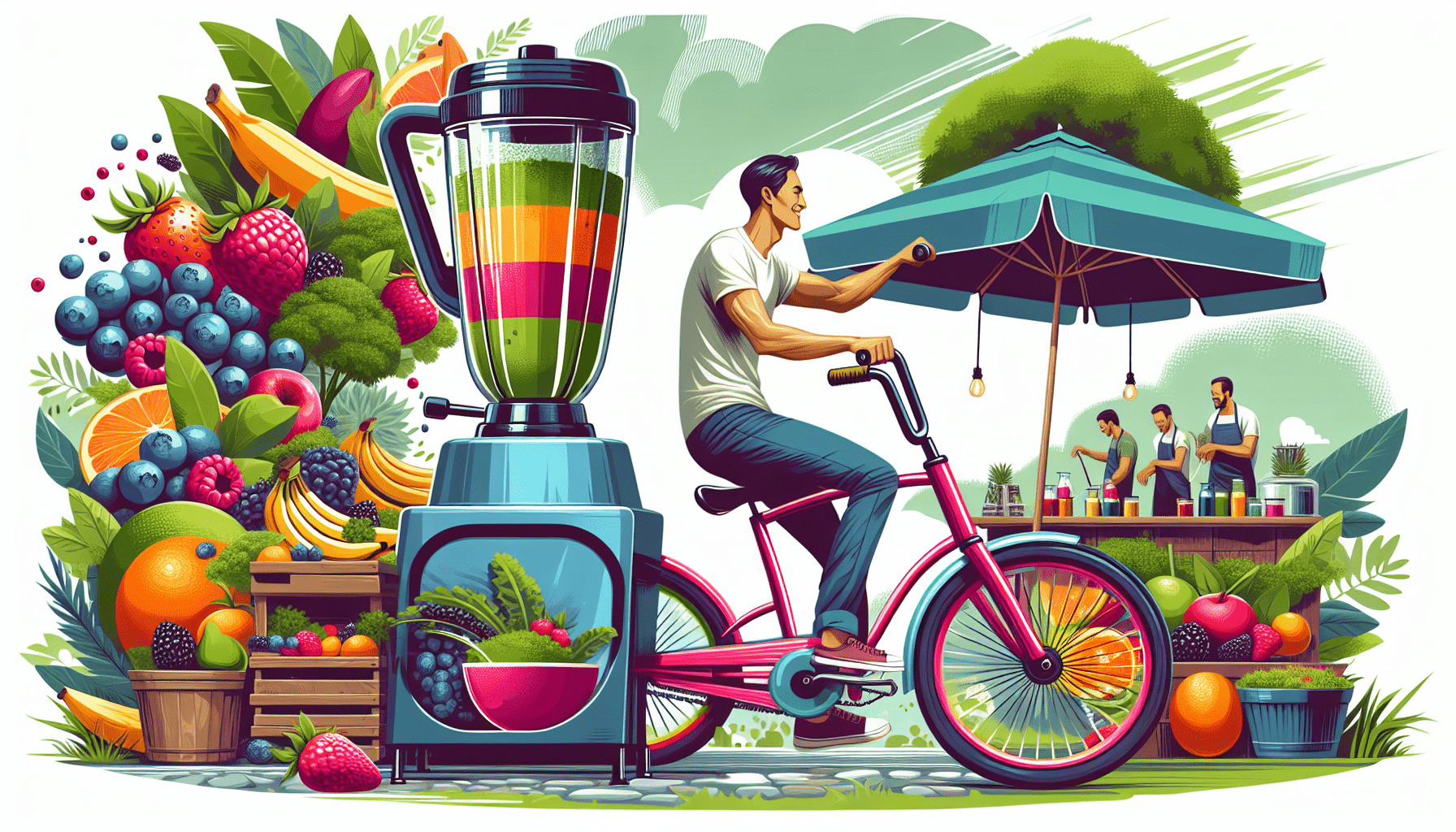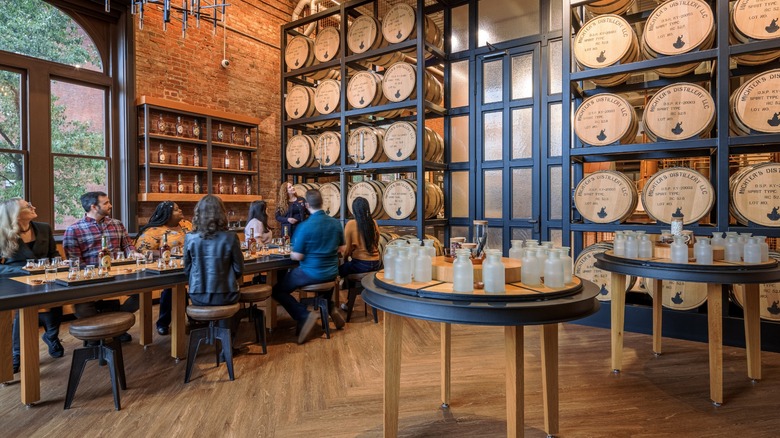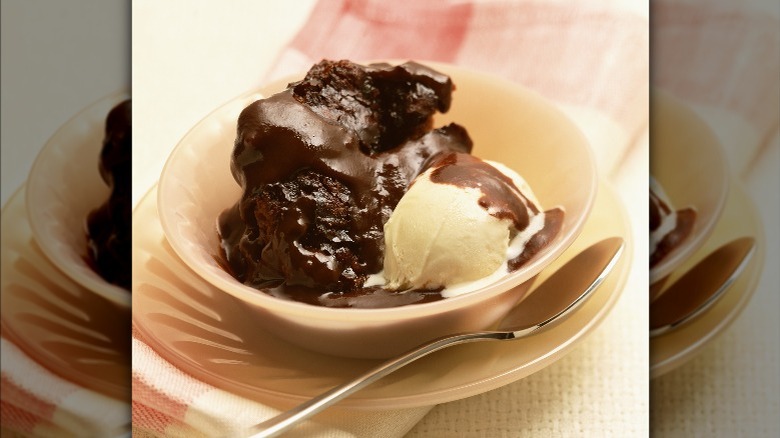Samsonite Freeform 21-Inch Hardside Carry-On Luggage with Spinner Wheels - Hardshell Carry-On Suitcase - TSA, Airline-Approved - Expandable Hard Shell, Smooth Rolling Wheels for Lightweight Travel
$127.27 (as of December 24, 2024 22:01 GMT +00:00 - More infoProduct prices and availability are accurate as of the date/time indicated and are subject to change. Any price and availability information displayed on [relevant Amazon Site(s), as applicable] at the time of purchase will apply to the purchase of this product.)Moberi: Here’s What Happened After Shark Tank” takes you through the inspiring journey of Ryan Carpenter, whose innovative idea of bike-powered smoothies found its roots on the streets of Portland, Oregon. Inspired by a Guatemalan nonprofit that converted bicycles into machines, Carpenter mixed his passion for healthy living with eco-friendly technology to launch Moberi in 2011. Despite facing skepticism on “Shark Tank,” Carpenter didn’t let the lack of investment deter him. Instead, he expanded Moberi into several successful locations, offering an enticing menu of smoothies, juices, and acaí bowls. With a loyal customer base and diverse offerings, Moberi has thrived, staying true to its mission of promoting health, sustainability, and community. Have you ever dreamed of making a living by doing something you absolutely love? For Ryan Carpenter, that dream was all about living an active, healthy lifestyle. Inspired by a Guatemalan non-profit organization, Ryan created something truly unique with just $500 and a vintage Schwinn stationary bike. Let’s dive into the incredible journey of Moberi and see what happened after its feature on “Shark Tank.”

Get an Official Zagat Restaurant Guide
The Birth of Moberi
Ryan Carpenter’s brainchild, Moberi, emerged from a blend of inspiration and passion. In 2011, he devised a bike-powered smoothie and juice cart that became Portland, Oregon’s first. By pedaling the bike, people could generate enough power to blend their own smoothies, resulting in a fun, interactive way to enjoy a healthy beverage.
The Idea Spark
The idea took root from the non-profit group Maya Pedal. This organization converts old bicycles into functional machinery for villagers in Guatemala, which inspired Ryan. Armed with this concept, a $500 budget, and an old Schwinn bike, he created his first bike-generated power source topped with a blender.
Gaining Traction in Portland
With savings put entirely into his venture, Ryan started selling smoothies on Portland sidewalks. The city’s unofficial slogan, “Keep Portland Weird,” worked in his favor, attracting people to his quirky yet healthy smoothies. By 2013, he had raised over $6,000 on Kickstarter for repairs and additional bike blenders, taking Moberi to its next growth phase.
Moberi’s Shark Tank Adventure
In 2014, Ryan Carpenter appeared on Season 5, Episode 17 of “Shark Tank” to seek further investment. He asked for $50,000 in exchange for a 15% stake in Moberi.
The Pitch
Combining the trends of food trucks, bikes, and juice bars, Ryan presented a fun, healthy, and delicious business model. The unique aspect was he invited Daymond John and Mark Cuban to pedal the bikes and try the smoothies themselves. They even got the judges to enjoy a green smoothie made with kale, pineapple, and mint.
Shark Reactions
Despite the positive feedback on the smoothies, the Sharks weren’t sold on the business model.
- Kevin O’Leary: Called the idea “nuts” and questioned its capacity to scale.
- Robert Herjavec: Thought the idea was clever but not scalable.
- Barbara Corcoran: Didn’t think it made sense.
- Daymond John: Liked the fun aspect but felt it belonged in niche markets.
- Mark Cuban: Appreciated the innovation but preferred to invest in bike manufacturing over the smoothie business.
The Outcome
Ultimately, no deal was made, but Ryan left with valuable exposure and feedback.
| Shark | Opinion | Reason |
|---|---|---|
| Kevin O’Leary | Out | Scalability concerns |
| Robert Herjavec | Out | Didn’t see it scaling |
| Barbara Corcoran | Out | Didn’t make sense to her |
| Daymond John | Out | Felt it belonged in niche markets |
| Mark Cuban | Out | Preferred bike manufacturing investment |

Get an Official Zagat Restaurant Guide
Life After Shark Tank
Despite walking away without a deal, Moberi flourished post “Shark Tank” with further growth, menu expansions, and more.
Expanding Locations
Ryan didn’t slow down. By May 2016, Moberi had a grand opening at Portland State University (PSU), followed by a cart at PDX airport. From 2017 to 2019, multiple new stores opened, including their flagship store in Slabtown. This level of expansion shows how resilient and innovative Moberi has become.
Menu Expansion
The menu evolved beyond the original smoothies and juices to include Brazilian-style acaí bowls. Creative names like the Fresh Prince of Brazil and Captain Planet made the offerings more engaging.
Highlighted Menu Items
- Smoothies: Fresh Prince of Brazil, Juice Springsteen, Captain Planet
- Acaí Bowls: Uncle Jesse, Purple Rain, Rainbowl Bright
Seasonal and Collaborative Specials
Moberi introduced limited seasonal specials and collaborated with other local businesses, enhancing their offerings with ice cream and milkshakes.
Maintaining Business in the Pandemic
Like many businesses, Moberi faced challenges during the 2020 pandemic. However, it stayed resilient through online ordering, pick-ups, and deliveries, supported by a loyal customer base.
Recent Developments
- New Store Openings: Lake Oswego shop in August 2023
- Menu Updates: Allergen-free acaí base, new orange juice option, reintroduced mango
- New Products: Sunny G citrus smoothie
- Tech Innovations: Launch of the Moberi app for online ordering and rewards program
Current Store Locations
Even after the pandemic’s impact, Moberi operates five permanent locations in the greater Portland area.
| Store Locations | Opened Year |
|---|---|
| PSU (initial store) | 2016 (closed in 2021) |
| PDX Airport | 2016 |
| Division Street | 2017 |
| Mississippi Avenue | 2018 |
| Slabtown (Flagship) | 2018 |
| Hawthorne Boulevard | 2019 |
| New Cedar Hills | 2022 |
| Lake Oswego | 2023 |
Community and Environmental Initiatives
Ryan and his team focus on creating a safe, diverse, inclusive space. They support Black Lives Matter, donate profits to racial justice organizations, and prioritize local sourcing, composting, and recycling.
Looking Forward
The future looks bright for Moberi, with plans for more menu items, customizable options, and even take-home freezer items. The company is currently hiring, showing a clear trajectory of growth.
What’s Next?
- New Ingredients: Upcoming additions to smoothies and bowls
- Customization: More ways to tailor products to customer preferences
- Take-Home Items: Soon-to-be-announced freezer items
- Hiring: Signals growth and new positions
Commitment to Health and Community
Moberi remains dedicated to providing healthy foods, upholding environmental standards, and giving back to the community. Ryan Carpenter’s journey exemplifies how passion and innovation can drive a business forward, even when traditional venture capitalists don’t see the potential.
Conclusion
Ryan Carpenter’s journey with Moberi is nothing short of inspiring. Despite facing initial skepticism from “Shark Tank” investors, he capitalized on the exposure and continued innovating, expanding, and staying true to his vision. Whether you’re pedaling your way to a smoothie or enjoying one in a cozy café, Moberi stands as a testament to perseverance and the power of a great idea. Here’s to many more years of healthy, delicious smoothies and continued success!
Get an Official Zagat Restaurant Guide






